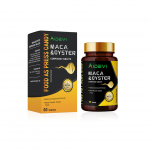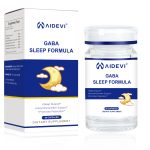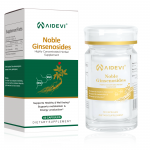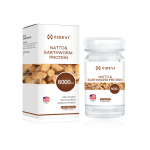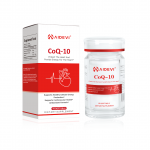4 Food that help your sleep
Getting a good night's sleep is a universal desire, and the relationship between what we eat and our sleep quality has become a subject of interest. In this exploration of sleep-enhancing foods, we'll delve into the potential benefits of three natural ingredients: rice, chamomile tea, and kiwi. Each of these elements offers a unique contribution to the quest for better sleep, and we'll uncover the science behind their sleep-promoting properties.
Rice
Research on how eating carbohydrates affects sleep has given us mixed results, but there's some evidence suggesting that eating rice might help you sleep better.
A study in Japan found that people who regularly ate rice reported better sleep than those who ate more bread or noodles. It's important to know that this study shows a connection but can't prove that rice directly causes better sleep. Still, it lines up with earlier research suggesting that eating foods with a high glycemic index (like rice) about four hours before bedtime can make it easier to fall asleep.
On the flip side, sugary drinks and sweets have been linked to worse sleep, which suggests that not all carbs have the same effect on sleep. We need more research to understand how different carbs affect sleep fully.
The effect of carbs on sleep might also depend on what you eat them with. For example, having some protein with tryptophan (an amino acid that helps with sleep) along with carbs could help tryptophan get to your brain more easily. Turkey is an example of a protein that's high in tryptophan.
Chamomile tea
Chamomile tea, the herbal drink many love, has some health benefits. It's known for having flavones, which are antioxidants that can reduce inflammation in your body, potentially preventing diseases like cancer and heart issues.
But what's cool is that chamomile tea can also help you in other ways. It might strengthen your immune system, ease feelings of anxiety and sadness, and even make your skin better.
The magic ingredient in chamomile tea is apigenin, an antioxidant that can talk to certain parts of your brain and make you feel drowsy, possibly helping with sleep problems.
One study in 2011 with 34 adults found that those who took 270 mg of chamomile extract twice a day for 28 days fell asleep 15 minutes faster and woke up less during the night compared to those who didn't use the extract.
And for people who struggle with sleep, especially women, there's more good news. Another study found that women who drank chamomile tea for two weeks said they had better sleep. Plus, they felt less down, which is often tied to sleep issues.
So, if you want to sleep better, consider having a cup of chamomile tea before bed. It's an easy and enjoyable way to potentially improve your sleep.

Kiwi
Kiwi is a fantastic fruit that's not only tasty but also good for you. It's low in calories – just 42 in one kiwi – and is rich in important nutrients. For instance, it gives you a big dose of vitamin C, meeting 71% of your daily need. It's also got vitamin K, which is crucial for your bones, and it covers 23% of the daily vitamin K requirement for men and 31% for women. Kiwi doesn't stop there; it's a good source of folate, potassium, and other essential minerals.
But the great thing about kiwi is that it's not just healthy; it can also help with your digestion, reduce inflammation in your body, and even lower your cholesterol. This is because kiwi is high in fiber and has special antioxidants called carotenoids.
Now, here's the interesting part: Kiwis might also help you sleep better. In a study, 24 adults ate two kiwis an hour before bedtime for four weeks. The results were amazing – they fell asleep 42% faster compared to when they didn't have a bedtime snack. They also woke up less during the night and slept longer.
What's the secret behind kiwi's sleep magic? It could be linked to serotonin, a brain chemical that helps regulate your sleep cycle. Plus, the antioxidants in kiwi, like vitamin C, might also play a role in making you sleep better.
While more research is needed to fully understand how kiwi helps with sleep, it's safe to say that eating 1-2 medium kiwis before bedtime could help you fall asleep faster and enjoy a longer, more restful night's sleep.
Nuts
Almonds, walnuts, pistachios, and cashews, among others, are often suggested as a bedtime snack to aid in better sleep. Nuts come packed with melatonin, a natural sleep-inducing hormone, as well as essential minerals like magnesium and zinc, which play key roles in various bodily processes. In a clinical study using supplements, it was observed that a combination of melatonin, magnesium, and zinc was effective in improving the sleep of older adults dealing with insomnia.
Sleep is a vital component of our overall well-being, and making informed dietary choices can have a positive impact on the quality of our rest. Rice, chamomile tea, and kiwi all bring their own special qualities to the table, potentially helping us fall asleep faster and enjoy more restful nights. While more research is needed to fully understand the mechanisms at play, these natural options offer a delicious and accessible way to support our quest for a good night's sleep. So, whether it's a comforting bowl of rice, a soothing cup of chamomile tea, or a tasty slice of kiwi, these foods can be your allies in the pursuit of better sleep.






